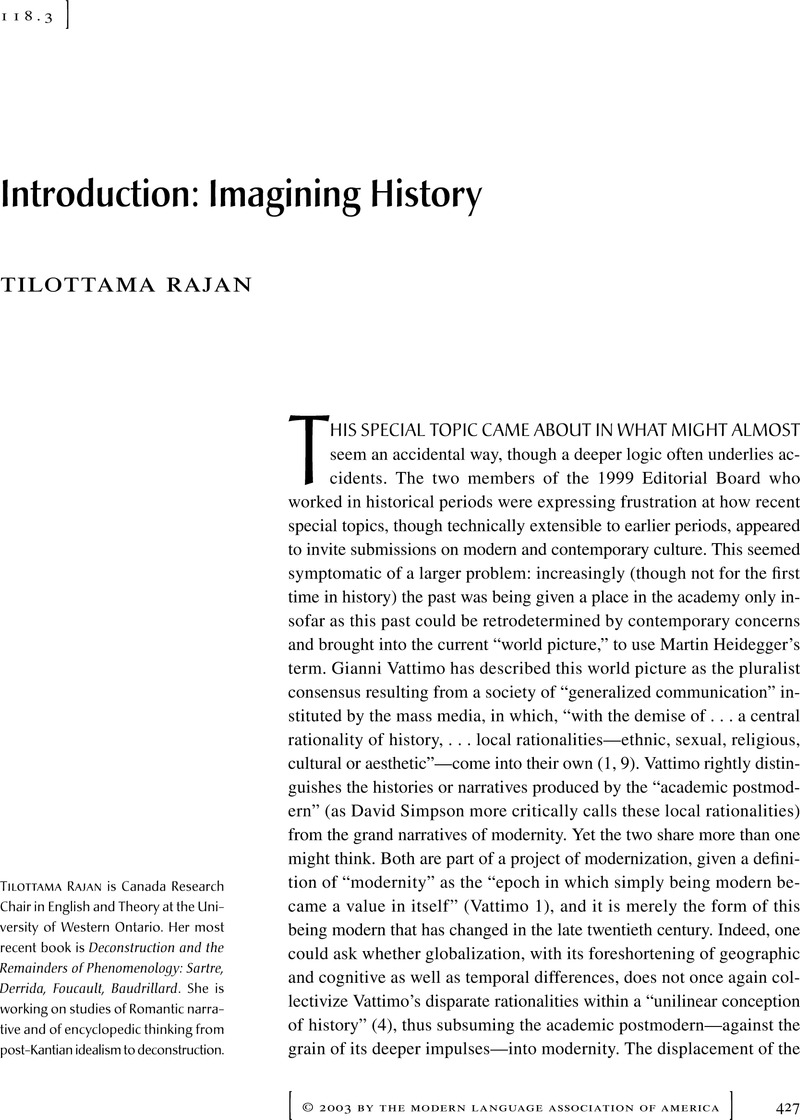Crossref Citations
This article has been cited by the following publications. This list is generated based on data provided by Crossref.
Bristow, Joseph
2004.
Why ‘Victorian’? A Period and Its Problems.
Literature Compass,
Vol. 1,
Issue. 1,
p.
**.
Manning, Susan
2011.
Transatlantic Literary Studies, 1660–1830.
p.
254.
Miles, Robert
2011.
Transatlantic Literary Studies, 1660–1830.
p.
202.



